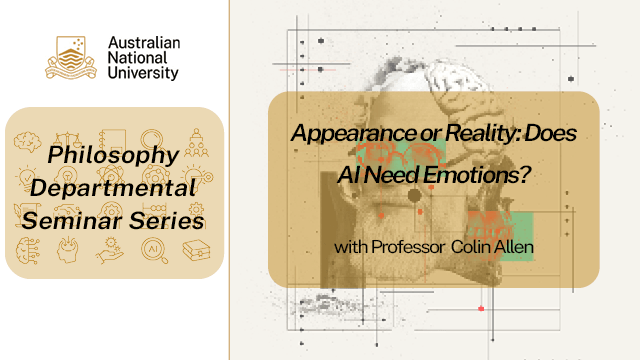Appearance or Reality: Does AI Need Emotions?

Commercially available AI systems for the detection of sentiment or emotions from human faces, text, and non-verbal behavior are already widely deployed, even if they don’t fully live up to the marketing hype. At the same time, generative AI models are now capable of producing text and images that are increasingly convincing to some end users as being empathetic to users’ emotions and as having their own emotions.
Such capacities are often argued to be important for effective human-machine interaction, but the actual limitations of current systems mean that their deployment comes with some hazards. Even if (as Colin maintains) these capacities do not amount to machines having their own emotions, the potential development of such machines is regarded by some commentators as even more hazardous. Perhaps incrementally improving the capacities of machines to detect emotions and to appear to have them suffices for smooth human-machine interaction but a further question exists about whether human-level intelligence crucially depends on emotions, or whether it exists despite emotions.
Colin will argue that the likely answer to this question is the former — emotions are crucial to intelligence — but answering this question definitively requires conceptual, theoretical, and experimental work at the interface of philosophy and cognitive science. The talk ends by sketching the research program that this entails, and questioning the wisdom of pursuing such a research program.
Colin Allen's main areas of research concern the philosophical foundations of cognitive science and neuroscience. He is particularly interested in the scientific study of cognition in nonhuman animals and computers, and he has published widely on topics in the philosophy of mind, philosophy of biology, and artificial intelligence. He also has several projects in the area of humanities computing.
This event was originally published on the School of Philosophy website.
Location
Level 1 Auditorium (1.28), RSSS Building 146 Ellery Cres. Acton 2601, ACT
Speaker
- Professor Colin Allen (University of California)
Contact
- Alexandre Duval